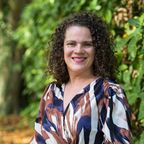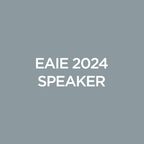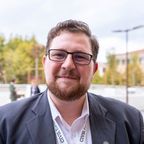Speakers



11:30 – 12:30 CEST, 19 September 2024 ‐ 1 hour
Room: Session room 03
Panel session
The flexibility of Blended Intensive Programmes can be used to internationalise the curriculum and develop a global mindset among staff and students. BIPs can widen access to international experiences to a more diverse cohort of students, and they can help to develop mutually beneficial collaboration with international partners. This session will provide practical examples of how to plan and implement BIPs.



Université libre de Bruxelles, Belgium
María Isabel Soldevila Brea is a journalist with over 20 years of experience. She is the Head of Communication of the European University Alliance CIVIS. She has a master's in journalism from Columbia University (Fulbright, 2004) & was Knight-Wallace Fellow at the University of Michigan, Ann Arbor (2015). She was UNESCO chair of Communication, Democracy and Good Governance for a decade in her native Dominican Republic.
University of Tübingen, Germany

University of Bucharest, Romania
Assist. Prof. Alexandru CARȚIȘ, Ph.D.(c) is the Head of CIVIS Education Unit (CIVIS European University Alliance), based at the University of Bucharest, and an assistant professor at the Faculty of Psychology and Educational Sciences of the same university. He holds a bachelor’s degree in educational sciences (specialised in Pedagogy) and in Religious Studies (specialised in Theology), master’s degree studies in Religious Studies (specialised in Religion History and Christian Thinking), and postgraduate specialisations in educational management & leadership. Currently, he is doing his Ph.D. studies in Educational Sciences, on a topic linked with curricular innovation in higher education through micro-credentials and flexibilization, his main research areas being higher education, curricular design and innovation, teaching & learning practices, micro-credentials, modularisation of learning, doctoral studies, and public policies in education and research.
Actively engaged in innovating teaching & learning in higher education, Alexandru Carțiș is currently member of several national and international working groups focused on different topics related to higher education and educational research, such as: UNICA EduLAB, FOR-EU Subgroup on European Degrees, EOSC (European Open Science Cloud) Future User Group, Consultative Commission for Doctoral Students of the National Alliance of Student Organisations in Romania (ANOSR), being also and associate-member of the Romanian Association for Research in Education (ARCE).
European Commission, France